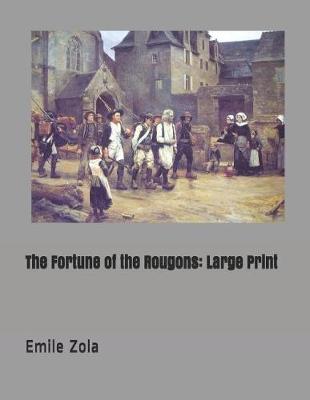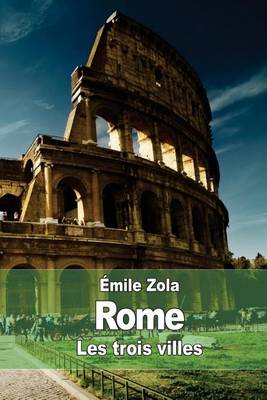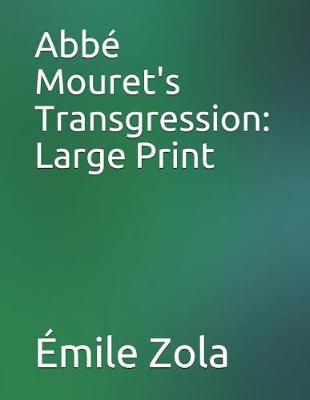Pocket Classics S.
10 total works
The arrival of Abbe Faujas in the provincial town of Plassans has profound consequences for the community, and for the family of Francois Mouret in particular. Faujas and his mother come to lodge with Francois, his wife Marthe, and their three children, and Marthe quickly falls under the influence of the priest. Ambitious and unscrupulous, Faujas gradually infiltrates into all quarters of the town, intent on political as well as religious conquest. Intrigue, slander, and
insinuation tear the townsfolk apart, creating suspicion and distrust, and driving the Mourets to ever more extreme actions.
The fourth novel in Zola's Rougon-Macquart sequence, The Conquest of Plassans returns to the fictional Provencal town from which the family sprang in The Fortune of the Rougons. In one of the most psychological of his novels, Zola links small-town politics to the greater political and national dramas of the Second Empire.
ABOUT THE SERIES: For over 100 years Oxford World's Classics has made available the widest range of literature from around the globe. Each affordable volume reflects Oxford's commitment to scholarship, providing the most accurate text plus a wealth of other valuable features, including expert introductions by leading authorities, helpful notes to clarify the text, up-to-date bibliographies for further study, and much more.
Aristide Rougon, known as Saccard, is a failed property speculator determined to make his way once more in Paris. Unscrupulous, seductive, and with unbounded ambition, he schemes and manipulates his way to power. Financial undertakings in the Middle East lead to the establishment of a powerful new bank and speculation on the stock market; Saccard meanwhile conducts his love life as energetically as he does his business, and his empire is seemingly unstoppable.
Saccard, last encountered in The Kill (La Curee) in Zola's Rougon-Macquart series, is a complex figure whose story intricately intertwines the worlds of politics, finance, and the press. The repercussions of his dealings on all levels of society resonate disturbingly with the financial scandals of more recent times. This is the first new translation for more than a hundred years, and the first unabridged translation in English. The edition includes a wide-ranging
introduction and useful historical notes.
ABOUT THE SERIES: For over 100 years Oxford World's Classics has made available the widest range of literature from around the globe. Each affordable volume reflects Oxford's commitment to scholarship, providing the most accurate text plus a wealth of other valuable features, including expert introductions by leading authorities, helpful notes to clarify the text, up-to-date bibliographies for further study, and much more.
Set in the fictitious Provencal town of Plassans, The Fortune of the Rougons tells the story of Silvere and Miette, two idealistic young supporters of the republican resistance to Louis-Napoleon Bonaparte's coup d'etat in December 1851. They join the woodcutters and peasants of the Var to seize control of Plassans, opposed by the Bonapartist loyalists led by Silvere's uncle, Pierre Rougon. Meanwhile, the foundations of the Rougon family and its
illegitimate Macquart branch are being laid in the brutal beginnings of the Imperial regime.
The Fortune of the Rougons is the first in Zola's famous Rougon-Macquart series of novels. In it we learn how the two branches of the family came about, and the origins of the hereditary weaknesses passed down the generations. Murder, treachery, and greed are the keynotes, and just as the Empire was established through violence, the 'fortune' of the Rougons is paid for in blood.
ABOUT THE SERIES: For over 100 years Oxford World's Classics has made available the widest range of literature from around the globe. Each affordable volume reflects Oxford's commitment to scholarship, providing the most accurate text plus a wealth of other valuable features, including expert introductions by leading authorities, helpful notes to clarify the text, up-to-date bibliographies for further study, and much more.
At first a vagrant is suspected; he could have come in through the open window while passing through the town at night. But in a matter of days another story begins to circulate: the culprit must be Simon, the Jewish schoolmaster, and the murdered boy's uncle and guardian. Did he not, it is rumored, resent the fact that the boy was the product of a mixed Catholic-Jewish marriage and was raised Catholic by his now deceased mother? Despite the total lack of evidence against him, as a Jew in the midst of a predominantly Christian community, Simon is completely vulnerable to these vicious allegations. The web of mendacity that is quickly spun around him is the product of centuries of entrenched anti-Semitism and the long-standing bitter rivalry between the Catholic majority of the town and an emerging secular minority. Through political pressure by influential Catholic clergymen and the manipulation of public opinion, the Church deftly deflects the suspicions of some that the murderer is actually one of the Christian Brothers and succeeds in gaining advantage against the threat of encroaching secularism in the town.
Based on his experiences with the infamous Dreyfus case, this powerful last novel by Emile Zola about the scape-goating of a Jewish schoolteacher is a chilling depiction of anti-Semitism fully embedded in European society and an eerie presentiment of the Holocaust that would sweep across the Continent only forty years later. But this is not the whole story, for Zola also brilliantly demonstrates how truth, though suppressed for a generation, slowly but inexorably comes to light through the dedication and perseverance of a few humble defenders, who remain unswerving in their demand for justice.








